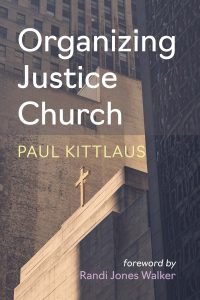Paul Kittlaus
Author & Abstract Artist
CHAPTER 1
Seeking a Church Engaged in the World
CHAPTER 2
Developing Values and Skills
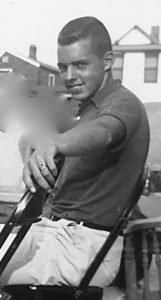
Paul Kittlaus, 1954
at Southwest High School, St. Louis, MO.
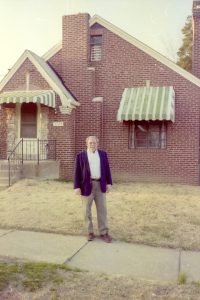
Paul Kittlaus, 1982
visiting the house where Stan Musial and his family lived and where he did the lawn work back in 1945–48.
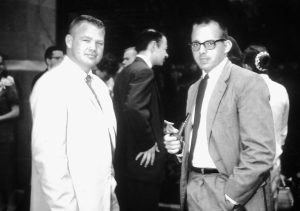
Tom Lasswell & Paul Kittlaus, 1959
Graduating from Chicago Theological Seminary/Divinity School-University of Chicago.
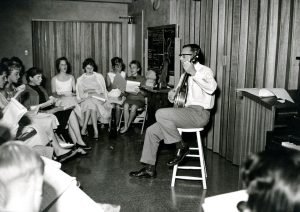
Paul Kittlaus on Banjo, 1960
Working with youth group at Kensington Church, San Diego.
CHAPTER 3
Moving into Justice Work 1959–1964
CHAPTER 4
Building a Justice Team, Taking Risks, Involving Our Families
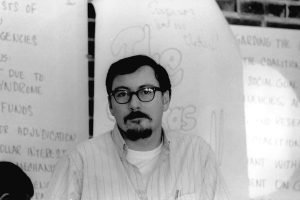
Speed Leas, 1973
Leas leading a training session
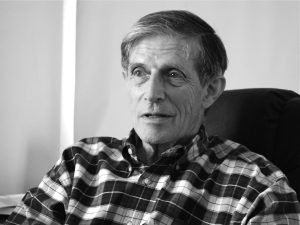
Al Cohen
During interview about the challenge to the racism of the Rose Bowl . (2009)
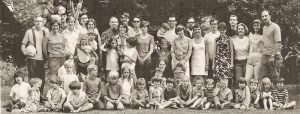
Memorial Day Turks Picnic
At our home in Pacoima (1967)
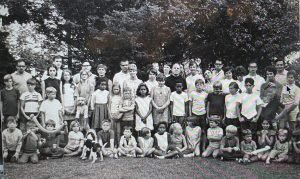
The Picnic
1968

A gathering of some of the Turks
at the home of Speed and Connie Leas in Boulder Creek, CA. L to R: Paul Kittlaus, Speed Leas, Bill Moremen, John Colburn, George Killingsworth, Lynn Jondahl in 1999.
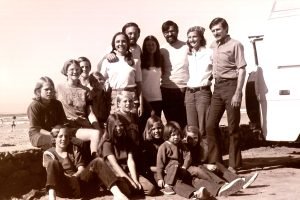
Thanksgiving Camping at Faro Beach
near Ensenada, Mexico. The Kittlauses, the Johnsons, and the Cohens. (1968)
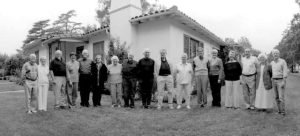
Turks Reunion
Claremont, 2004
CHAPTER 5
Living and Working in the Ghetto and Barrio 1964–1968
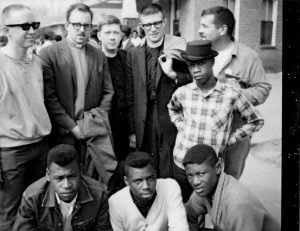
Waiting for the March to Assemble in Selma, 1971
(Bottom Row) Local Young Men: Clemie Tynes, Lloyd Cleveland, James Alexander, & Clifton Barker. (Top Row) from Southern California: George Killingworth, Paul Kittlaus, Lynn Jondahl, Al Cohen, & Pete Flint.

Chris Hartmire & Cesar Chavez
Chris Hartmire, Director of the National Farm Worker Ministry, and Cesar Chavez, President of the United Farm Workers Union. Our work was 100% supportive of Chris’ work. We often met together for joint planning sessions. He worked with us on anti-war efforts. (1967)
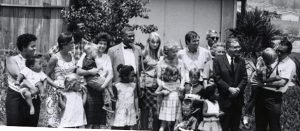
Baptism of son Adam
Family and friends gathered in Pacoima. (1963)
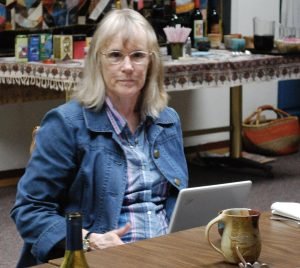
Professor Randi Walker
from Pacific School of Religion in Berkeley. She met with Turks and families several times over the last few years. I consulted with her often. She assigned students to interview us. I am honored that she agreed to write a Foreword for this book. The history of the sixties in America and in American churches has yet to be written. Randi’s ideas stimulated me. (2005)
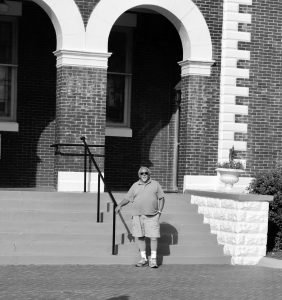
Brown Chapel, Selma, Alabama
In 2011, Paul Kittlaus revisits sites of the 1965 March.
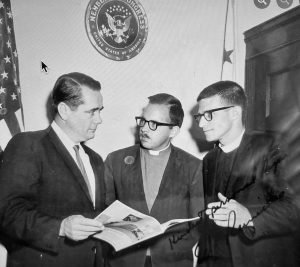
Kittlaus and Cohen visit Congressman Ed Reinecke
In his Washington DC office on the way home to California from the Selma March. (1965)
CHAPTER 6
Training Clergy and Laity for Urban Ministry 1968–1974
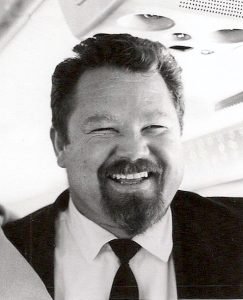
Tom Lasswell
On his way with us from LA to the Chicago Urban Training Center. (October 1968)
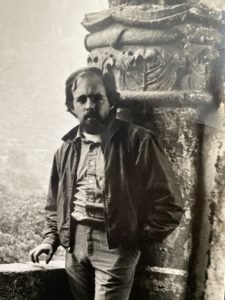
Paul Kittlaus
Guatemala (1969)

Tom Hayden & Jane Fonda
(1973)
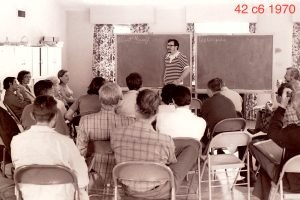
Conflict Management Workshop
Led by Speed Leas for clergy. (1970)

Paul Kittlaus in Cuernavaca, Mexico
Leader, with Speed and Connie Leas and others from COMMIT, training on racism and organizing. (1970)
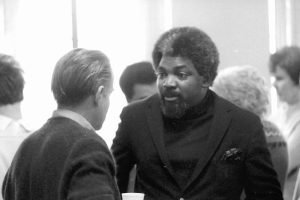
Cliff Jones, Community Organizing Trainer
Cliff was widely connected in South Central LA. (1971)
CHAPTER 7
Organizing against the Vietnam War 1970–1974

Stop the Bombing

Rabbi Leonard Beerman & Rev. Dr. George Regas
Rabbi Leonard Beerman of the Leo Baeck Temple in Los Angeles and Rev. Dr. George Regas, Rector of the All Saints Episcopal Church in Pasadena. In 1970 the Rabbi and the Rector were sent to Paris for the Vietnam War Peace negotiations. I invited them to be our team to gather firsthand impressions about the prospects for peace. Arrangements were made by the national office of Clergy and Laity Concerned (CALC). Upon return they were committed to three live reports around Southern California. I did the advance work in those locations.
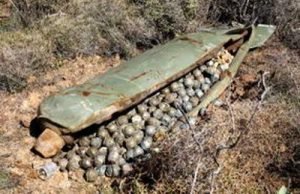
Unexploded Cluster Bombs
(2023)

Rev. Richard Fernandez
Executive Director of Clergy and Laity Concerned (CALC) about the war in Vietnam. (1971)
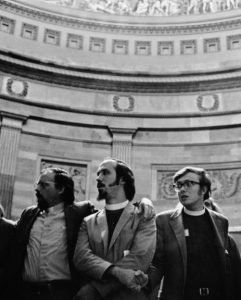
Capitol Rotunda Before Arrest
Kittlaus, Percel, & Rankin (1972)
CHAPTER 8
Lobbying in Washington, DC for Peace and Justice 1974–1984

Ann Kittlaus Protesting
(1968)
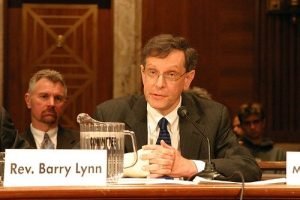
Rev. Barry Lynn
Washington Policy Advocate in the UCC Office for Church in Society. Seen here during his leadership of Americans United for the Separation of Church and State. (2015)
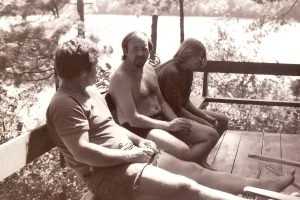
Chatting at Squam Lake, NH
Dick Fernandez, Paul Kittlaus, & Adam Kittlaus. (1975)
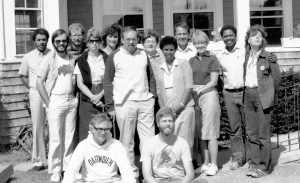
Staff of the UCC Office for Church and Society
Staff Retreat: our Executive Director was Yvonne Delk, standing front row, light jacket, white shirt. (1982)

Gretchen Eick
Expert on Foreign Policy and Military Spending on the Washington UCC lobbying staff. (1980)

Faith Evans & Jay Lintner
Washington lobbying staff members. (1984)

Paul Kittlaus Making a Point
Setting legislative goals and strategy for the new Congress. (1975)
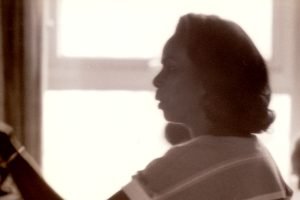
Rev. Dr. Yvonne V. Delk
(1982)

#56 no entry

Our Blended Family.
(1982)
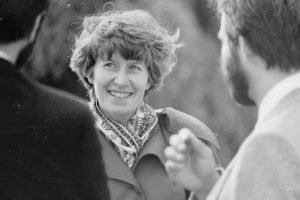
Rev. Christa Grengel
Ecumenical Officer for the Evangelical Church of the Union in East Germany. (1981)
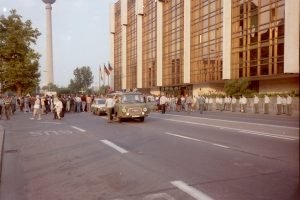
Government Headquarters, East Germany
Where my meeting with the State Secretary for Church Affairs, Klaus Gysi, was held. (1981)
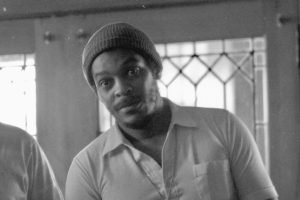
Faith Evans
Staff Lobbyist: Expert on Welfare issues, former staff of the National Welfare Rights Organization.
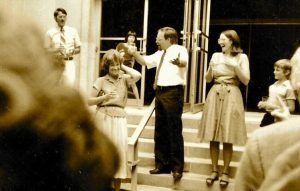
After Paul & Janet’s Wedding
Standing on the steps of First Congregational Church, Washington DC. Ministers were Rev. Bill Moremen and Rev. Jean Alexander. (1981)
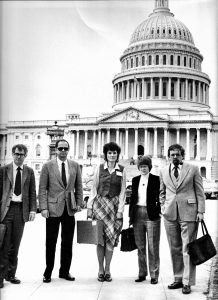
Washington. DC. (1980)
UCC Policy Advocates: Jay Lintner, Dave Rohlfing, Gretchen Eick, Zelle Andrews, & Paul Kittlaus.
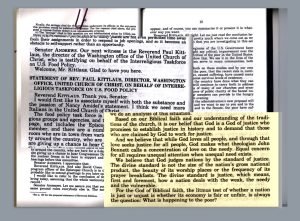
Statement of Rev. Paul Kittlaus
A sample of my testimony before a sub-committee of the Senate Committee on Agriculture. (1983)
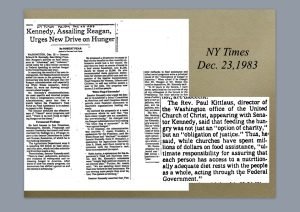
New York Times December 23, 1983
Article by Robert Pear reporting on Senator Kennedy’s challenge to President Reagan’s drive to reduce funding for addressing hunger in the US. Pear reports support of the religious community for Kennedy’s efforts.
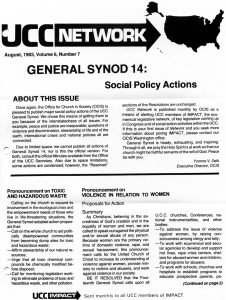
Monthly Legislative Update
Sample from the UCC Washington office. (1982)
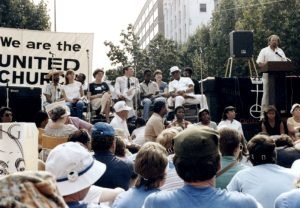
Peace Rally
Paul Kittlaus addresses UCC participants in a peace rally in Washington, DC. (1983)

Klaus Gysi & Christa Grengel
Klaus Gysi, State Secretary for Church Affairs in the East German Communist government, and Rev Christa Grengel, Ecumenical Officer in the Evangelical Church of the Union in East Germany. Christa set up this meeting so that Gysi and I could chat. I was most interested in knowing why, if Communist doctrine predicts the withering away of the Church, there is a member of the President’s cabinet to deal with the church. He said, “Doctrine has no answers for us.”
CHAPTER 9
Pastoring in Santa Barbara 1984–1992: Homelessness and Peace Mission to Germany
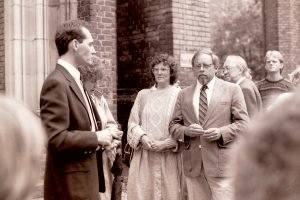
First Hour in Communist East Berlin
A little stress on our faces. From the left: Steven Townsend, Director of Music, Rev. Christa Grengel, officer of the East German Protestant Church, Janet Vandevender, Paul Kittlaus, unknown, and Adam Kittlaus. The choir from the First Congregational Church Santa Barbara was invited to sing in the worship service at the Bartolomauskirche. Later, in small groups, to lunch with church members. The choir had memorized several anthems including two in German for this service. (1987)
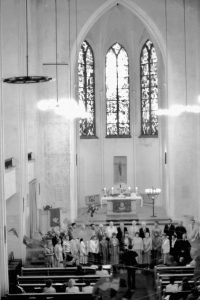
The Santa Barbara Choir
Singing in the beautifully restored East German church. (1987)
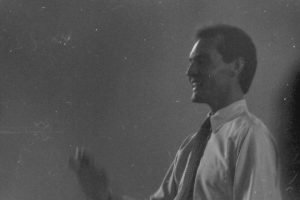
Steven Townsend
Music Director, First Congregational Church UCC Santa Barbara, CA. (1987)
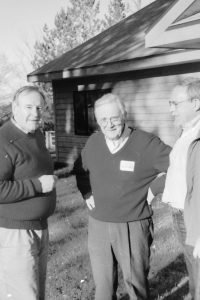
UCC/EKU Working Group
Professor M. Douglass Meeks (God the Economist), Professor Frederick Herzog (Justice Church) and Kittlaus (Organizing Justice Church) at a meeting. (1986)
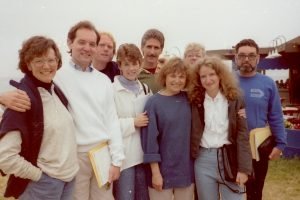
Members of the Santa Barbara Choir
Welcoming a young woman from the Bartolamauskirche in East Berlin. (1988)
CHAPTER 10
Serving in Madison 1992–1999: LGBT Affirmation and a Pigsty in Chiapas
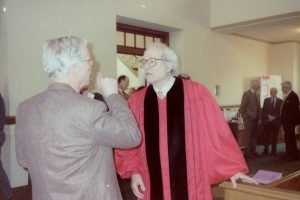
Rev, Dr. William Sloane Coffin, Jr.
Responding to a question after his talk in the Madison Church, “Homosexuality, the Last Prejudice.”
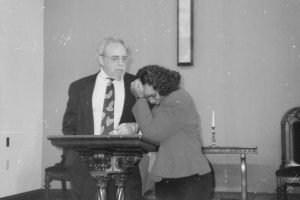
Madison, Wisconsin
I introduce my former bass, Rev, Dr. Yvonne Delk, who agreed to my invitation to speak in Madison. She laughs at my jokes sometimes. (1994)
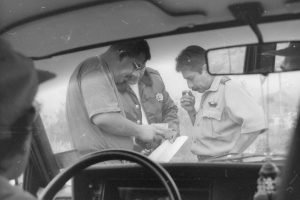
In Madison, Wisconsin
Immigration Police check our passports and wait for orders from headquarters. The next day our group from the First Congregational Church, Madison, were ordered to report to police headquarters prepared for deportation. (1998)
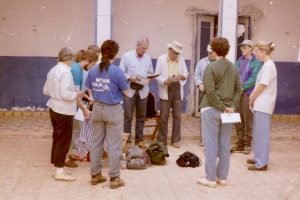
Morning Meditation & Sharing
We gathered each morning in a circle. Here, Fred Arnold (in light blue shirt) shared: “Before this trip my soul felt parched and dry. As we wait for the truck to take us to the worksite, I feel my soul is full as we share this work with these people.” (1998)
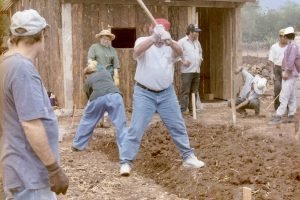
Another Swing at the Rocky Earth
Paul Kittlaus and others (1998)
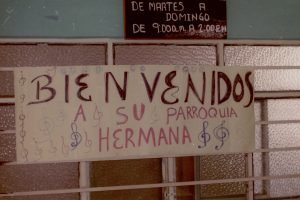
“Welcome to Your Sister Parish”
A Greeting and Welcome from the Parish in Las Margaritas in Chiapas, Mexico for the First Congregational Church team, UCC, from Madison, WI. (1990)
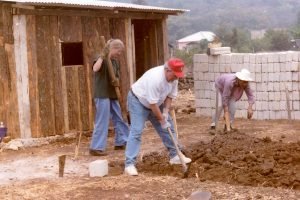
Digging Foundation for the Pigsty
First element in a new cooperative in Las Margaritas. (1998)
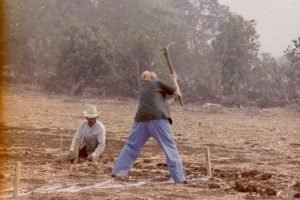
Laurie Shaw Wields a Pickaxe
Our host families are not used to seeing women on the worksite. (1998)
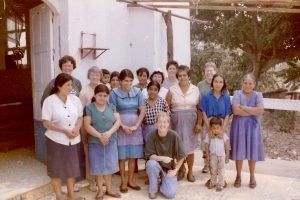
“Las Mujeres Hablan”
The Women Speak — wives of the men building the pigsty requested a separate meeting with the women on our team. They discussed organizing a cooperative Tienda (small market) that would eliminate having to walk three miles each way to the nearest store. (1998)
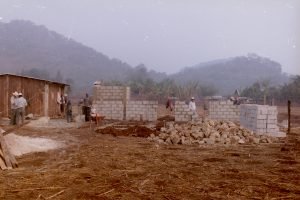
Worksite in Las Margaritis
(1998)

Off to Work We Go
Madison church volunteers headed to worksite in Las Margaritas to dig the foundation of the pigsty cooperative. (1998)
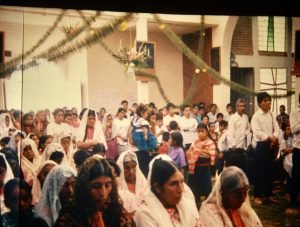
Worship Service in Las Margaritis
Before the worship service began the members of the Madison delegation were invited to relocate from the stage to the floor and stand behind the elders of the village for the service. There were no pews benches or chairs. Everyone stood for the whole time. We were not told why our team was invited to stand behind the elders until we were leaving after the service. We saw several camouflaged paramilitary trucks with armed forces. There was a strong fear that the church would come under attack. They had orders to destroy the leadership of the villages. Such actions were under way in that region. The presence of north Americans acted as a shield against this violence. (1998)
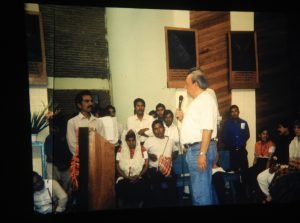
Paul Kittlaus Speaking at the Church in El Bosque on Pentecost Sunday
He speaks in English. The indigenous people speak Tojolabal, a Mayan dialect. A quick survey does not find a person who can translate English into Tojolabal. A Dutch missionary can translate English to Spanish, neither his native language. Someone else can translate Spanish into Tojolabol. So we created a system that gives us promise that what he says is what they will hear. He spoke slowly pausing often for two translations to occur. No one was able to estimate the degree of accuracy between the English and the Tojolabal. (1998)
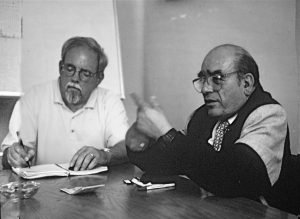
Bishop Samuel Ruiz with Paul Kittlaus
Bishop Ruiz was the last Bishop in Latin America who was an Advocate of Liberation Theology. (1996, San Cristobal de las Casas, Mexico)
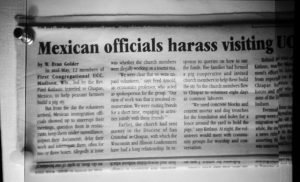
Article Clipping
Newspaper carrying the story of the harassment our 1998 team suffered from immigration officers, known as La Migra. (1998)

Our Special Banners
We commissioned a noted banner designer and make to prepare for the church a set of seasonal banners for the church year. These are the Christmas set. (1997)
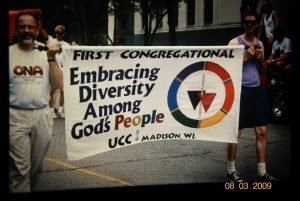
Gay Pride Support
The First Congregational Church UCC was the first church in Madison to have a sign plus a gang of supporters in Gay Rights Parade. (1996)
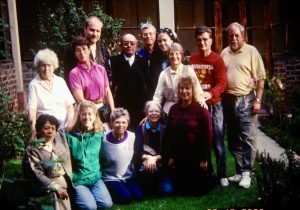
Chiapas, Mexico
This is from the first trip to Chiapas where our primary project was to visit some settlements along the border in Guatemala. The UN had built villages for refugees who had been driven out of their communities by paramilitary troops directed by the central government. Our team from many churches in Wisconsin were meeting with Bishop Samuel Ruiz (center). (1996
CHAPTER 11
Exploring Possibilities of Justice Church
Contact Me:
Thank you for reviewing
the Paul Kittlaus
Abstracts Portfolio.
Please get in touch
to find out more.
909-437-2910
All Rights Reserved — Copyright © Paul Kittlaus 2022
